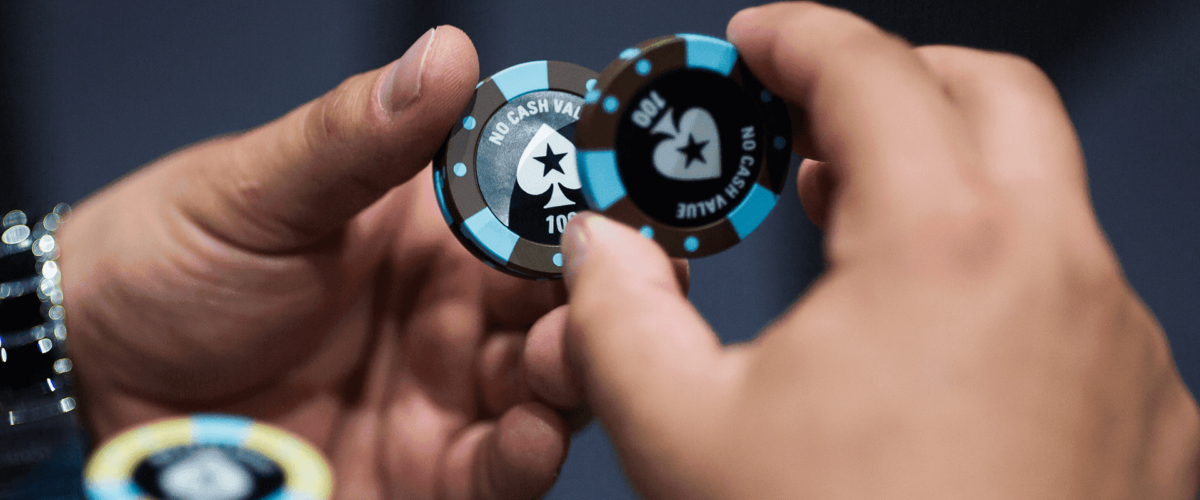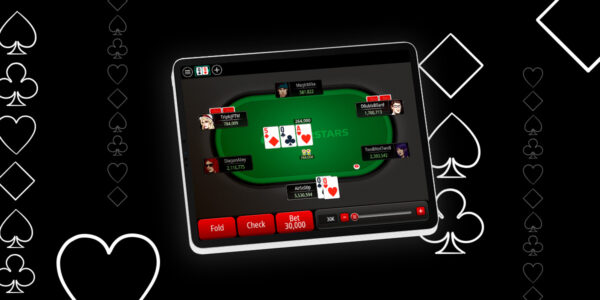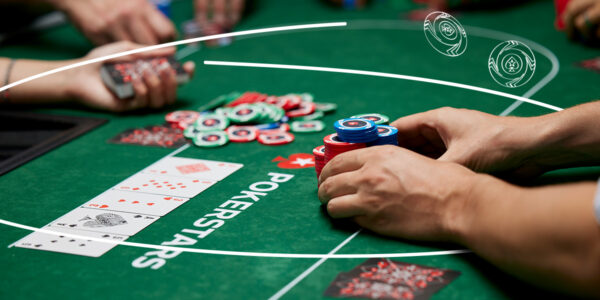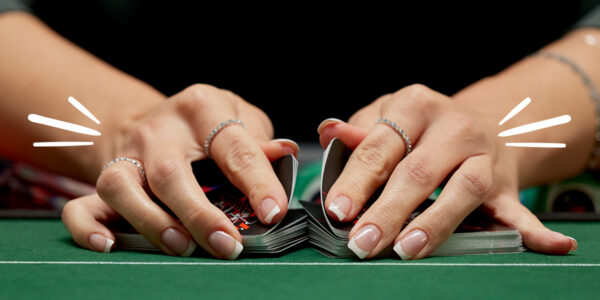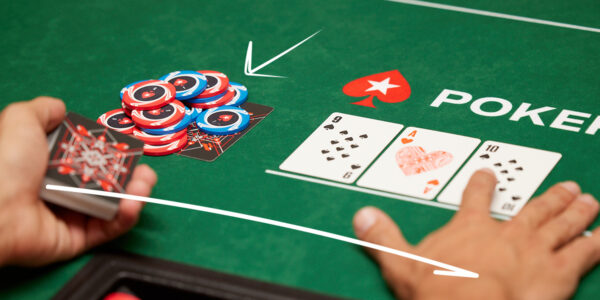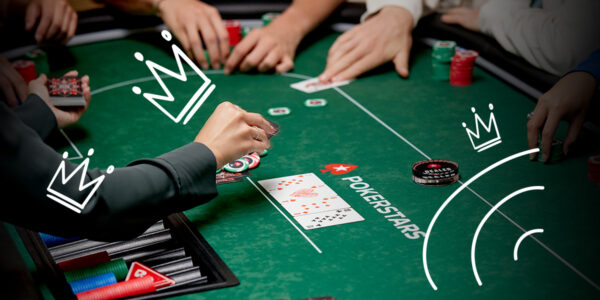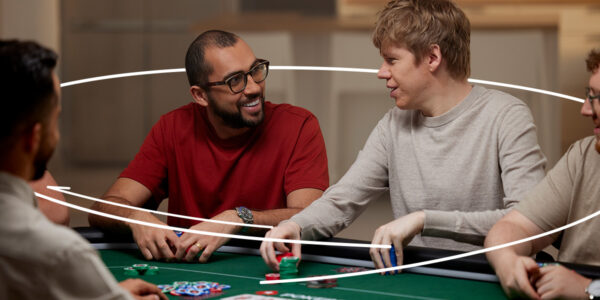Poker Guide: What is GTO? (Game Theory Optimal)
The term GTO is becoming more and more popular. Although the theory of GTO has been discussed for many years, its popularity within poker is peaking right now.
A common way to explain how GTO works is based on the game Rock, Paper, Scissors. If you were going to play Rock, Paper, Scissors the optimal GTO percentage to throw each option would be 33%.
- Throw – Rock 33%
- Throw – Paper 33%
- Throw – Scissors 33%
This way your opponent cannot exploit you, although in the long run you won’t win either, because you’re not exploiting your opponent. You’ll likely end up breaking even! This is even more likely if your opponent is also playing GTO.
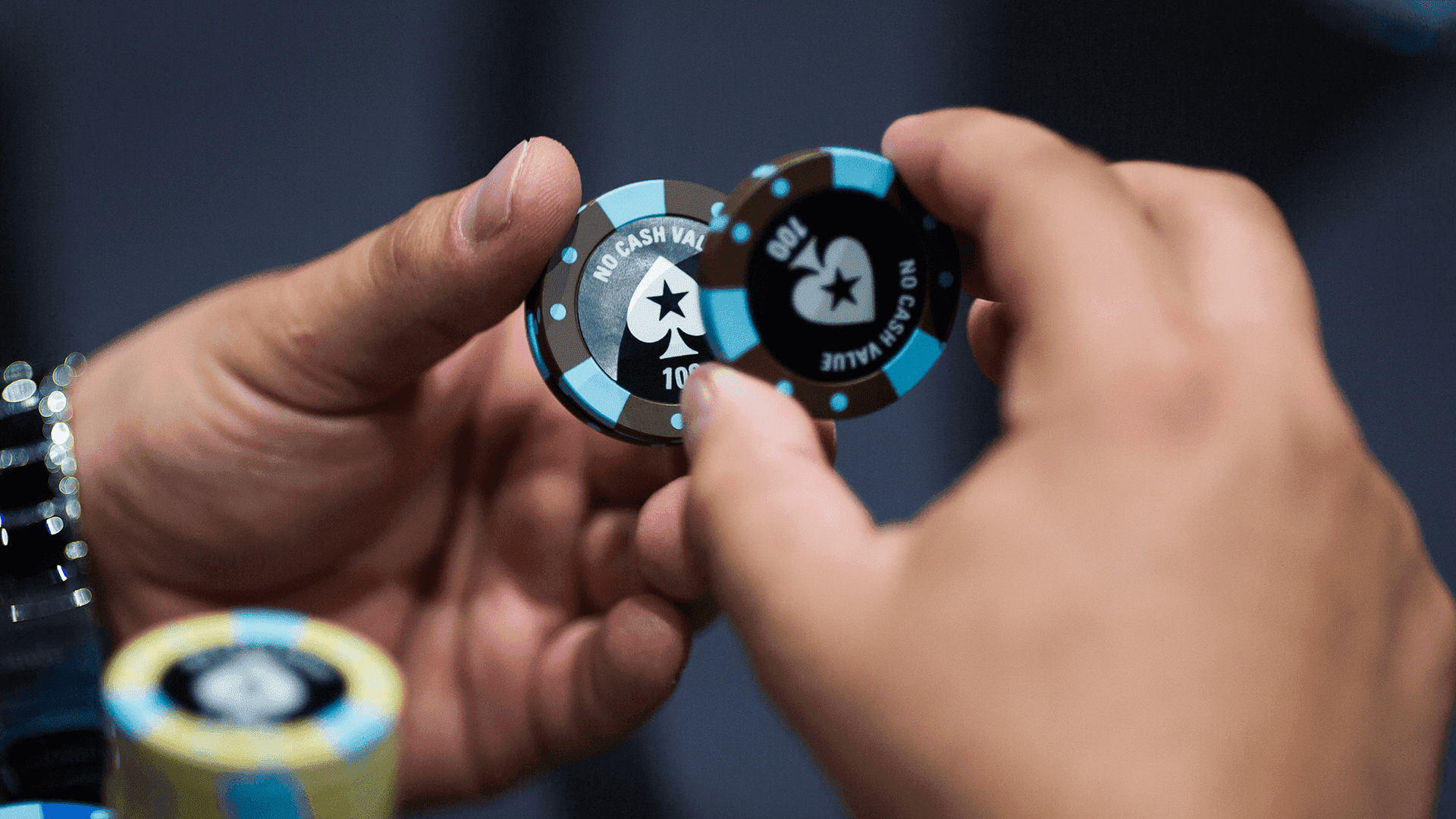
So how would you beat an opponent playing GTO Rock, Paper, Scissors? Well, you’d have to deviate from time to time. If you know your opponent is going to throw Rock 33% of the time and you see them throw Rock five times in a row, you can be fairly certain that Rock won’t show up very often in the next few throws. You now have a 50% chance they will throw Paper and a 50% chance they will throw Scissors. Your optimal strategy here would be to throw Scissors.
- Your Scissors vs Opponent’s Scissors = a tie.
- Your Scissors vs Opponent’s Paper = a win for you.
You could play your Scissors strategy until your opponent throws a Rock, then revert back to GTO strategy. Once you see a pattern again you can deviate from GTO to create a winning strategy.
You’re probably thinking, “Great, I’m a Rock, Paper, Scissors pro…what does this have to do with poker?”. Well GTO, in its very basic form, is just the art of perfect balance. Let’s explain in poker terms.
- Rock = Raise for value 33%
- Paper = Check 33%
- Scissors = Raise as bluff 33%
Let’s say on the river the above were your three options. Just as in Rock, Paper, Scissors, you’ll need to find the right balance. Of course, with poker it’s much more complicated, based on many different factors including your opponent.
Whilst the perfect balance may be to bluff the river 33% of the time, it wouldn’t make sense to bluff an opponent you know will call you 100% of the time. In this case you can only raise your value hands and check your weaker hands.
However, if this opponent notices that you only ever bet on the river with value hands, so starts folding, they are exploiting your play. You could then start to bluff the river, exploiting their play, until they figure out you are bluffing. After they figure out you only bluff the river, you could revert back to GTO of 33% bluff, 33% value, 33% check making us much tougher to play against. Again, we can deviate from GTO where doing so makes sense.
GTO is really not too important at lower stakes games, but is important for high stakes, nosebleed games and high rollers. For most of us, whilst it’s good knowledge to have, it’s probably not as important as balancing our value bets, bluffs and calls to exploit our opponents.
Condimentum Nibh
Donec sed odio dui. Cras mattis consectetur purus sit amet fermentum. Vestibulum id ligula porta felis euismod semper. Curabitur blandit tempus porttitor.

